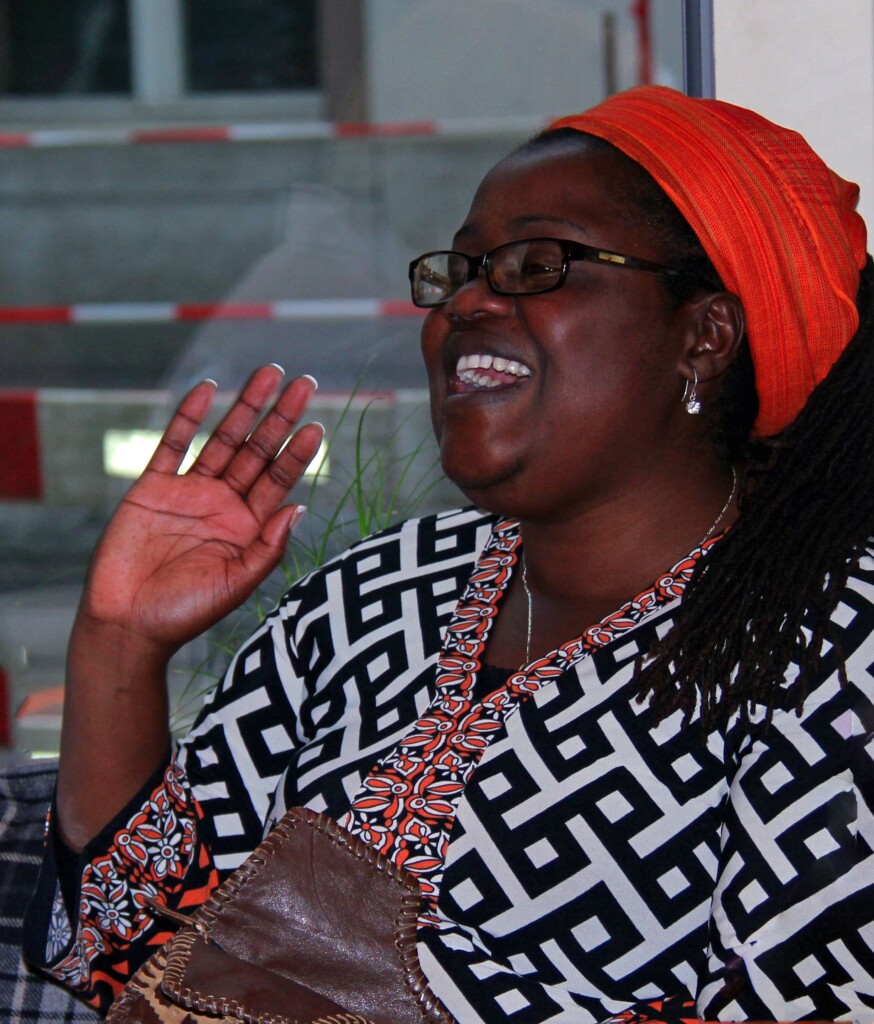Lucy Mazingi: It’s time to share power
This year, 2023 marks a milestone achievement of 60 years of development work for the Fund for Development and Partnership (fepa). fepa was founded when black and white pioneers established community farms in Rhodesia- now Zimbabwe, working together and, in a way, challenging the Rhodesian government and white supremacy ideology. fepa has throughout its history worked with grassroots movements and solidarity networks in Zimbabwe, Tanzania, South Africa and Mozambique around human rights, democracy, empowerment, and standing against racism and racial discrimination.
It is essential during this milestone celebration to reflect on how development aid in Southern Africa where fepa has active partnerships has shifted. This is an opportunity to immerse ourselves in the current conversation around decoloniality and localisation as fepa positions itself for the next 40 years. Our reflections will also be informed by experiences from the COVID-19 pandemic and our responses to the war in Ukraine which have further challenged us to rethink development aid.
There is growing acknowledgement by development actors on the need to shift power dynamics as far as aid is concerned by re-examining trust and redefining partnership. This has been an ongoing process but more effort towards dismantling structural barriers that impede its advance is needed. It is also important to interrogate narratives that preclude local actors from playing the leading role in the development of their own communities.
Deep-rooted Power Relations
If we look at the historical governance structures for international funding agencies, the power dynamics were, and some are still well pronounced in terms of the geographical location of the agencies- headquarters offices in Northern capital cities including lack of diversity in staff and board members. This in most cases meant flying in and out of communities/ countries to monitor and participate in activities and projects, very often with exorbitant overheads. Some countries in the South are also tightening immigration laws making it cumbersome to get work permits for international staff. There has also been a conscious shift over the years to establish regional offices in southern regional centres with some donor agencies taking a step further to establish countries offices that employ, and some led by local staff.
Currently, International Non-Governmental Organisations (INGOs) prioritise the needs of the majority affluent country donor(s). They provide the funding, choose which projects go ahead, write proposals, and determine what expertise, development and success look like. Furthermore, the country-based INGOs, donors, or offices usually have the budgetary power and the last say in many if not all areas. This final say must be endorsed by the Northern Head Office. Because of the historical power imbalances, many local organizations have difficulty pushing back against donors, especially on program priorities or crucial financial terms like indirect cost rates. Communities even know that local community-based organisations have to wait for approval or final say from the INGOs – that is how embedded these power relations are. If INGO staff go on summer holidays everything stops and the impact is felt at local community levels where delays are experienced.
There is still a lot of hesitance by development actors to fully localise based on experiences from the past where some cases of corruption and fraud have occurred. There are narratives that purport that local organizations are more prone to fraud, cannot comply with donor requirements, or lack the capacity to implement complicated programming that meets donor expectations.
Share Power for a more just Development
If we are to move towards decolonisation, a radical examination of narratives andchanging approaches of aid by involving and elevating people, systems and methods that originate from communities side-lined by historical imbalances that include colonialism. It is crucial that organisations are honest and transparent about the structure and history of the international aid sector and the inherent cycles of privilege and power. According to Humentum, there must be an understanding of the cycle of dependency that has been created in aid-recipient countries and populations. This understanding should result in a relinquishing, transferring, and sharing of power at all levels of its structure.
To decolonise aid, INGOs should start by addressing the lack of diversity in leadership and governance. Leadership and governance should respect differences, and be genuine, equitable and inclusive. Power holders must truly understand their power and privilege. More women and men of colour and other social identities should be in senior leadership positions and embrace inclusive and feminist leadership styles that are rooted in care, solidarity, and empathy. This should be extended to governing boards of INGOs that remain predominantly male and white, or from the white/European diaspora.
The aid-receiving people (in their diversities) and country must be acknowledged, included, and centred in proposals and solutions. Co-creation and co-implementation by the people should be adopted. Success must be defined by the community receiving the aid. There is a need to ensure that development work will contribute towards communities’ autonomy and self-sustainability instead of reinforcing inequality, white supremacy, and unequal power relations.
To counter narratives around risk, donors would need to increase their risk tolerance when working with local partners by moving away from viewing local actors as an inherent risk; and instead treating them as vital assets bringing both value for money and a greater possibility of sustainability.
The evidence from the localisation shows that local knowledge and engagement are essential for sustainable, equitable development and redressing the inequalities that exist between the global and local actors. More ownership and effective utilisation of resources is achieved through localisation. This may not happen overnight, but acceleration steps must already be put in place.
Lucy Mazingi

The charismatic and influential civil society activist has been involved in international cooperation for three decades. On the occasion of fepa’s 50th anniversary, she was our guest in Switzerland. Lucy Mazingi has been the country director of “We Effect” since 2021.
